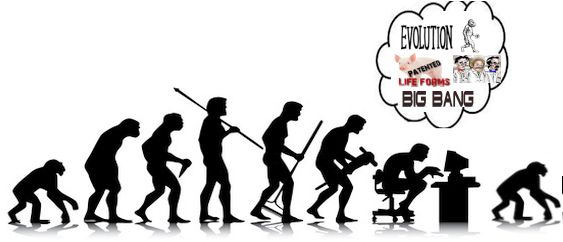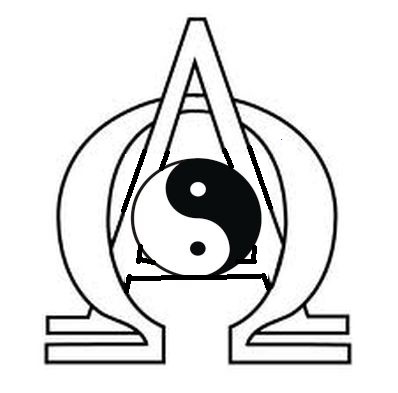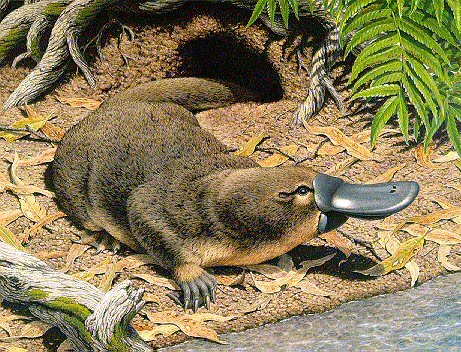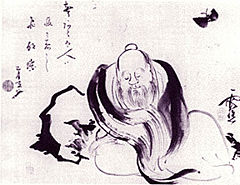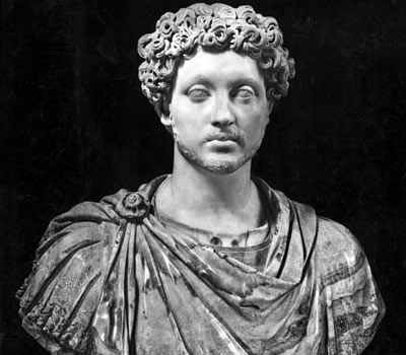The idea that human beings “evolve” is really an ambiguous, if not meaningless, proposition.
A person who decides to be a thief, and studies, practices for that purpose, can indeed evolve and become a better criminal.
In and of itself Evolution is empty, unless a goal of some sort, or ideal, is the end aim. Said another way, as the Taoists believe, the Way or the Tao is exactly that, the way things go, and it applies to everything in the universe. ALL of it is in constant state of change, not merely Man or just the Earth. In the same way that a runner builds stamina, and practice makes perfect, we can see how we humans alone can evolve, and so better our predicament, in the span of less than one lifetime. This kind of evolution, like the inevitable advancement of the world, is a fact, by virtue of historical proof.
The Tao or The Way, perhaps as the Greeks would have said, the Logos, or as the Buddhists would say, the way the Lotus comes to flower, are all affirmations of an evolution, in the sense of their being indicative of a coming-to-be, representing a world being constantly created (with, or) within time. Ethically this is a neutral proposition: it is not good or bad that we “progress” in this way. It just is, well, THE WAY it works.
Now recognition of all these facts is nevertheless no reason to justify Darwinism, or Evolution with a capital “E”, which are specialized versions of traditional ideas about evolution, versions which attempt to expand on known truths to create new ones. As we have said, what is good in Darwinism and Evolution is good because it is ancient lore, it is old news and even common sense thinking. You water your plants with the expectation it will evolve to a better plant, or at least grow as it should (by nature). Parroting of this knowledge as old as man does not allow the claim that the “Origin Of Species” is now known.
Indeed, Darwin’s one (kind of) original thesis, that the origin of a species is a different species, or even genera, has yet to be proven at all. No evidence exists showing any “halfway” creature, but for the record, let’s consider the platypus. The platypus looks like an otter mated with a duck and a beaver, or like a beaver that got its face stuck in a duck’s bill. It lays eggs like a duck but is classified as a mammal, one of few venomous mammals, with poison spurs on its back feet. Can this be evidence of a Darwinian Evolution in action, maybe a duck becoming a mammal, or vice versa? We have still ducks and beavers and otters, how do we know which way this platypus is going? Which way is the evolution advancing?
As a point of fact, the platypus is known to have existed over 100,000 years ago, in its present form, with slight modifications due to The Way. No one disputes that each individual species changes over time, what is highly disputable is whether these natural progressions alone are enough for new species to come out of old ones.
Also problematic is that EVEN if it is correct, EVEN if what it claims were to be true, Darwinian Evolution would not provide the answers we seek. If every creature came from another creature, there is still the question of that primordial creature from which evolved all the others. Evolution has a problem of not merely defining the first life, but more, of explaining the reason why there is any living creature at all. The theory, as is, does not even consider why there is something rather than nothing, why things “came to life” at all. There is, furthermore, no inquiry as to why the assumed first things living, say the “primordial slime“, proceeded forth this way here, and another way there.
Not to criticize others without criticizing ourselves, we must admit here that our investigation toward finding the origin of Man has made one assumption which so far has gone undefended. I believe an elucidation and defense of this accepted premise is conducive toward understanding the Truths we have so far come upon.
Specifically, what exactly “Man” is, as I have been using it, has not fully been defined. The concept Man as I usually use it, capitalized and without quotes, is one which stands for all human beings. The way I see it, only ONE species of “homo” has ever existed, and should be classified as such, and that is what I call Man. What has been termed “Homo” and so of the same genus as human beings, such as Homo ergaster, Homo habilis, Homo rudolfensis, and similar monkeys, apes, and chimps of yesteryear, are not properly “Homo” at all. This continued mistake in classification not only demeans the status of humanity, making it more like the animals, but also expects too much of the animal.
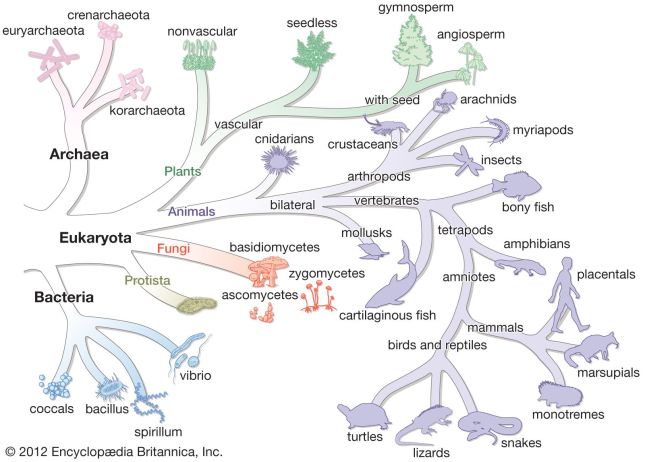
The common (Linnean) classification of human beings, or Man, one actually Aristotelian in origin, runs like this:
Kingdom: Animalia (Animal)
Phylum: Chordata (Backboned, with a spine)
Class: Mammalia (Mammal)
Order: Primates (Ape-like)
Family: Hominid (Humanoid)
Genus: Homo (Man)
Species: Sapiens (Thinking, or Wise)
If it is true as claimed, that is, that humans and mice have four-fifths of their genes in common, this reason alone is still not good enough to classify humans with the apes, or even the dug-up apes. This is because, I believe, DNA is read backwards, as it is assumed that the genetic code is programmed into the composite of the creature. On the contrary, understand what is really happening here: simply put, the form, the idea for the type of creature, takes precedence, that is, comes before, the matter used to form it.
The very same carbon, for instance, which is magically gathered, in different ratios, to help form the mouse on one hand and the ape on the other, will be so accumulated by virtue of a pre-existing plan contained within the form, or the idea for the creature. The matter any animal or plant is composed of is really incidental – if not insignificant – as the elements from which the myriad types of life are composed are also shared alike by everything found on this Earth.
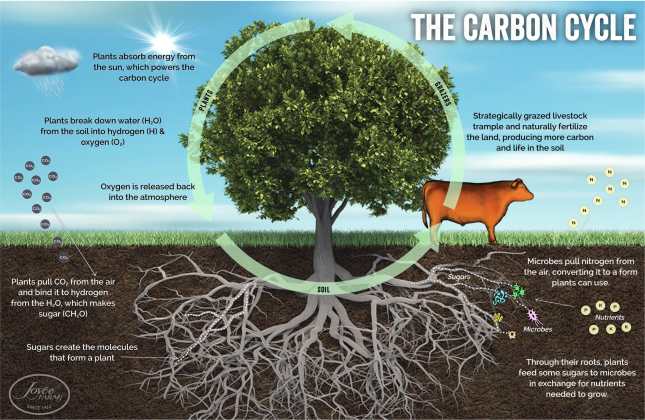
Everything living, compared one to another, will reveal DNA similarities as well as differences. The likenesses come from the common elemental structures, the materials Nature uses to construct all life, and the differences arise from the specific form of each creature.
It must be remembered the elements are the only material with which Nature has to work. The patterns and commonalities among living creatures exist not necessarily because they are the same in kind, but rather because they must be made of the same stuff. It is simply not possible for things, especially living creatures, to be created out of material that does not exist.
What exists, we know, are the elements. We have named and classified them. Nature, that primal aspect of deity entrusted with manufacturing Life, only changes what works if this change is necessary for the creation of a new thing or creature. It is possible new elements come into being as needed, and only as needed, this perhaps one reason why the Periodic Table must be occasionally amended.
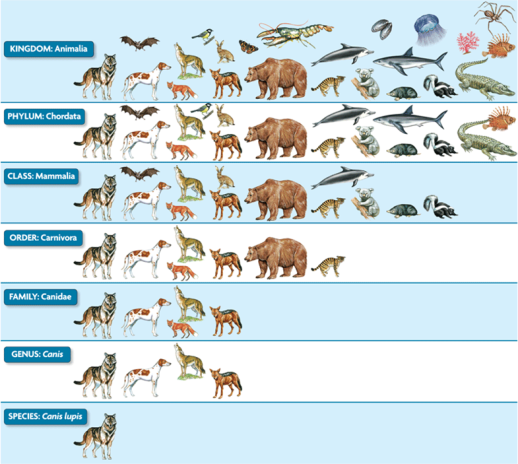
If we can agree that this is the way Nature proceeds, the main question we should then concentrate on answering, considering the usual classification of living things, is whether Man is part of the Animal Kingdom at all. On the surface, yes, Man is like the animals. We eat like the other omnivores, and procreate like them, and we have a backbone, nurse with milk, stand on our hind legs, have no feathers, etc., all just like the mammals. Remember though that, at least according to Aristotle’s classification system, everything “higher” on the ontological chain also contains within its form those aspects of the lower. Hence, a cow grows as does the grass it eats, reproduces very similarly to the flowers it lays next to in the field, and takes in nourishment and excretes wastes, just like the insects and trees. But no scientist would ever think about classifying a cow with a tree, or an insect. All this to say that just because Man has things in common with the animals, does not necessarily mean he should be classified with them.
Well then, is Man in some way different than animals, at least as different from animals as animals are from plants (and both, from protista and other bionts)? Yes he is. And can we really argue that Man ought to be a Kingdom, nay, have a kingdom to itself? Yes we can. Here are just some of the things which distinguish Man from every other Earth creature, in no particular order:
1. Language, and all its implications/derivatives/conceptual constructs
2. Advancement as a species, in general trying to better themselves and situations
3. Personal adornment, primping, preening, beautifying
4. Writing, written communication, with all the implications
5. Capable of high level of thought and imagination (fantasy)
6. Creation, novelty, invention
7. Establishment and maintaining of personal relationships beyond utility
One could, with all necessary reason and empirical justification, prove that Man is a different sort of creature, an entity unlike any other.
Darwinism, or Evolution, as a theory for explaining Man’s origin, ultimately fails for yet another reason. At the same time, it would be foolish to discard the idea of evolution, meaning those human observations and principles therefrom, and on which the modern fable is based. Let’s then consider what a person could mean by “evolution”, with small “e”:
1. A change, in general (random movement)
2. A change, for the better (purposeful movement)
Change is natural and persistent in our world, it is observable and measurable. The Way, or the Logos, that is real, or true evolution, could be guided by a spirit of advancement, working toward creating – or manifesting – a better or greater reality. On the other hand, change could be random, due to chance, or the result of a general expansion, or some type of cyclical movement with no particular ends in mind.
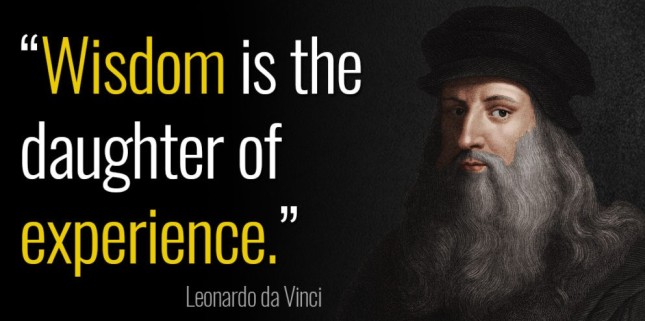
Many great teachers, from BC times on, have said that all living things have a potential, and that the conditions in which these creatures arise, combined with how they are raised and cared for within these conditions, determine whether or not that potential is reached. In regards to us humans, for example, what can our evolving be toward? Is it toward becoming more rich, or more strong, or more intelligent, somehow more…prolific? If we assume our individual human potential is, unlike the other plants and animals, unlimited, is there a direction we should be headed for, a goal we should be seeking to attain?
Let’s be even more specific here. If you or I wish to better ourselves what would we use as our guide? How would we know what constitutes advancement at all, let alone how to go about achieving it? Put yet another way, if you could have or be anything, and have the means and ability to do get or become it, how would you know what to choose? In what direction should you go? Are such decisions determined by the limits of your experiences?
These things in mind, I wish to discuss a bit the concept of the self-actualized individual, or the authentic person, because it goes a long way to answering these important questions. This phenomenon goes by several names. The Taoists use the term Zhenren; the Hindus the Bodhisattva, perhaps Sat Guru; the Muslims usually reserve Al-Insān al-Kāmil for Muhammad and his Imam successors; Aristotle and later Maslow called it the Self-Actualized or Self-Realized man. The concepts “guru”, “master”, “wise man”, “arhat”, perhaps “shaman”, even, I would argue “Super Man“, all mean to signify an enlightened individual, someone just a bit more in-tune with the harmony of the spheres than the rest. Many of the great mystics, martyrs, and philosophers would also qualify. To give you an example here are some characteristics of this ideal:
Zhenren (Chinese: 真人; pinyin: zhēnrén; Wade–Giles: chen-jen; literally ‘true or genuine person’) is a Chinese term that first appeared in the Zhuangzi meaning “Daoist spiritual master”, roughly translatable as “Perfected Person”. Religious Daoism mythologized zhenren to rank above xian “transcendent; immortal” in the celestial hierarchy, while Chinese Buddhism used it to translate arhat “enlightened one”.
From the Zhuangzi:
There must first be a True Man before there can be true knowledge. What do I mean by a True Man? The True Man of ancient times did not rebel against want, did not grow proud in plenty, and did not plan his affairs. A man like this could commit an error and not regret it, could meet with success and not make a show. A man like this could climb the high places and not be frightened, could enter the water and not get wet, could enter the fire and not get burned. His knowledge was able to climb all the way up to the Way like this.
The True Man of ancient times slept without dreaming and woke without care; he ate without savoring and his breath came from deep inside. The True Man breathes with his heels; the mass of men breathe with their throats. Crushed and bound down, they gasp out their words as though they were retching. Deep in their passions and desires, they are shallow in the workings of Heaven.
The True Man of ancient times knew nothing of loving life, knew nothing of hating death. He emerged without delight; he went back in without a fuss. He came briskly, he went briskly, and that was all. He didn’t forget where he began; he didn’t try to find out where he would end. He received something and took pleasure in it; he forgot about it and handed it back again. This is what I call not using the mind to repel the Way, not using man to help out Heaven. This is what I call the True Man.
…This was the True Man of old: his bearing was lofty and did not crumble; he appeared to lack but accepted nothing; he was dignified in his correctness but not insistent; he was vast in his emptiness but not ostentatious. Mild and cheerful, he seemed to be happy; reluctant, he could not help doing certain things; annoyed, he let it show in his face; relaxed, he rested in his virtue. Tolerant, he seemed to be part of the world; towering alone, he could be checked by nothing; withdrawn, he seemed to prefer to cut himself off; bemused, he forgot what he was going to say. …
Therefore his liking was one and his not liking was one. His being one was one and his not being one was one. In being one, he was acting as a companion of Heaven. In not being one, he was acting as a companion of man. When man and Heaven do not defeat each other, then we may be said to have the True Man.
This idea of a stoicism in the face of adversities and windfalls alike is characteristic of a self-actualized, authentic, indeed in many ways super human being. This Stoic approach to Life, essentially “rolling with the punches”, “playing the hand dealt to you”, “accepting what you cannot change”, and put so many other ways, signifies an attitude more accepting of The Way than trying to battle or overcome it.
Lest it be thought that this attitude be a strictly Eastern phenomenon, Marcus Aurelius, the Roman emperor, perhaps the world’s ever actually existing real philosopher-king, was such a Stoic, whether or not he be considered a full-fledged Zhenren. If you will recall, Aurelius made it a point to every night recount his day’s dealings, and criticize himself, such as to what he did right and what wrong, what he should have done differently, and so on. On this he writes in his Meditations:
About what am I now employing my own soul? The substance of the universe is obedient and compliant; and the reason which governs it has in itself no cause for doing evil, for it has no malice, nor does it do evil to anything, nor is anything harmed by it. But all things are made and perfected according to this reason.
Let it make no difference to thee whether thou art cold or warm, if thou art doing thy duty; and whether thou art drowsy or satisfied with sleep; and whether ill-spoken of or praised; and whether dying or doing something else. For it is one of the acts of life, this act by which we die: it is sufficient then in this act also to do well what we have in hand.
Look within. Let neither the peculiar quality of anything nor its value escape thee.
All existing things soon change, and they will either be reduced to vapour, if indeed all substance is one, or they will be dispersed.
The reason which governs knows what its own disposition is, and what it does, and on what material it works.
The best way of avenging thyself is not to become like the wrong doer.
Take pleasure in one thing and rest in it, in passing from one social act to another social act, thinking of God.
The ruling principle is that which rouses and turns itself, and while it makes itself such as it is and such as it wills to be, it also makes everything which happens appear to itself to be such as it wills.
In conformity to the nature of the universe every single thing is accomplished, for certainly it is not in conformity to any other nature that each thing is accomplished, either a nature which externally comprehends this, or a nature which is comprehended within this nature, or a nature external and independent of this.
The universe is either a confusion, and a mutual involution of things, and a dispersion; or it is unity and order and providence. If then it is the former, why do I desire to tarry in a fortuitous combination of things and such a disorder? And why do I care about anything else than how I shall at last become earth? And why am I disturbed, for the dispersion of my elements will happen whatever I do. But if the other supposition is true, I venerate, and I am firm, and I trust in him who governs.
When thou hast been compelled by circumstances to be disturbed in a manner, quickly return to thyself and do not continue out of tune longer than the compulsion lasts; for thou wilt have more mastery over the harmony by continually recurring to it.
Authentic, self-realized individuals are not mere clones of one another. They are each and every one unique, and when even enlightened authentic pupils study under authentic enlightened teachers, we have seen how different they can be. What all the great sages seem to have in common is an abiding by a certain important few virtues and a respect for a Plan, a system which the Taoists call The Way, the Greeks called the Logos, Aurelius here calls “the Reason”, and so on.
It is not in harder substance, or greater longevity, that Man will find his future. Evolution of Man in particular, as opposed to advancement of the world in general, can only come via progress in intellectual, ethical, and moral understanding. Logic is only the beginning of Man’s true Evolution. Once it is understood what honesty, and so correct thinking should be in structure, Man becomes intellectually prepared to advance apart from, and somewhat independent of the normal restrictions imposed by Nature. The “Sat Gurus”, the Enlightened Ones, The Zhenren – not merely the famous ones known to all history and all religions, but the multitude of others with names nobody can remember, but nevertheless by whose deeds and words the world yet remains on an even keel – these are the limits of Man, and in a sense, the maintainers of everyone else.
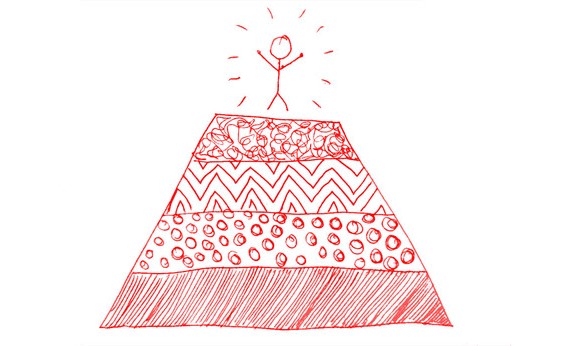
Self-realized individuals are at once guides and guideposts, pointers of direction as well as lights in the darkness. Ostensibly, one might be shaven bald, the other with hair to his knees, one dressed in clean solid colors, the other in muddied plaids, one chanting mantras, the other humming homilies or the Beatles, but in spirit they will be the same – because perhaps, in essence, they are the same. The Enlightened Ones do not set dress code standards, or tell you the right way to hold a fork or dress for a funeral, in fact most Zhenren have some bad habits, as some would call them, or antisocial or otherwise bad attitudes, and most of them hold a healthy disdain for the opinions of the majority. Character flaws and eccentricities, indeed, are all but trademarks of the more famous of the Enlightened Ones. Yet by their actions we know them to be peaceful, respectful, helpful, kind, and really unable to purposefully harm other human beings, and struggle to even step on a cockroach.
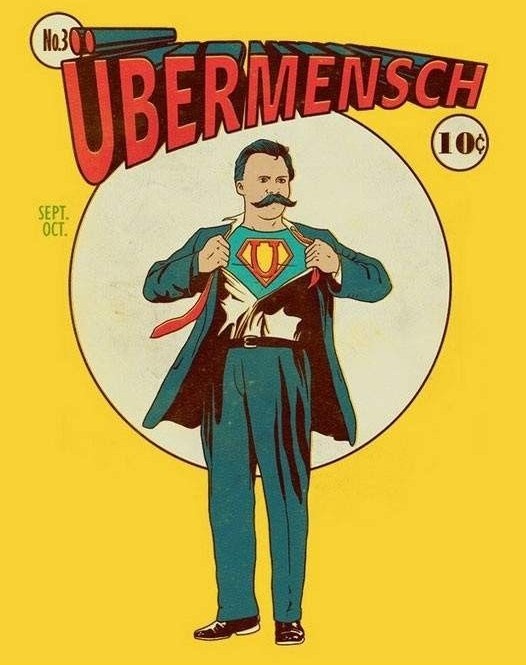
More importantly, we know these self-actualized individuals sometimes become aware of information and knowledge beyond the scope of their experience. They know, seemingly, even when they shouldn’t, so much so that some, even of them, have said maybe it would be better to know nothing at all. Nietzsche noticed the pattern by observing that according to standard evolutionary laws Man should be evolving toward becoming something else, something no longer Man, something beyond Man, in fact, a Superman. That this idea has become visualized by a flying super-strong human in a leotard and cape, rather than, say, an unflappable, original visionary, recluse, or mystic living in a barrel, makes what one means by “super” or even “better” at all, a very important question.
